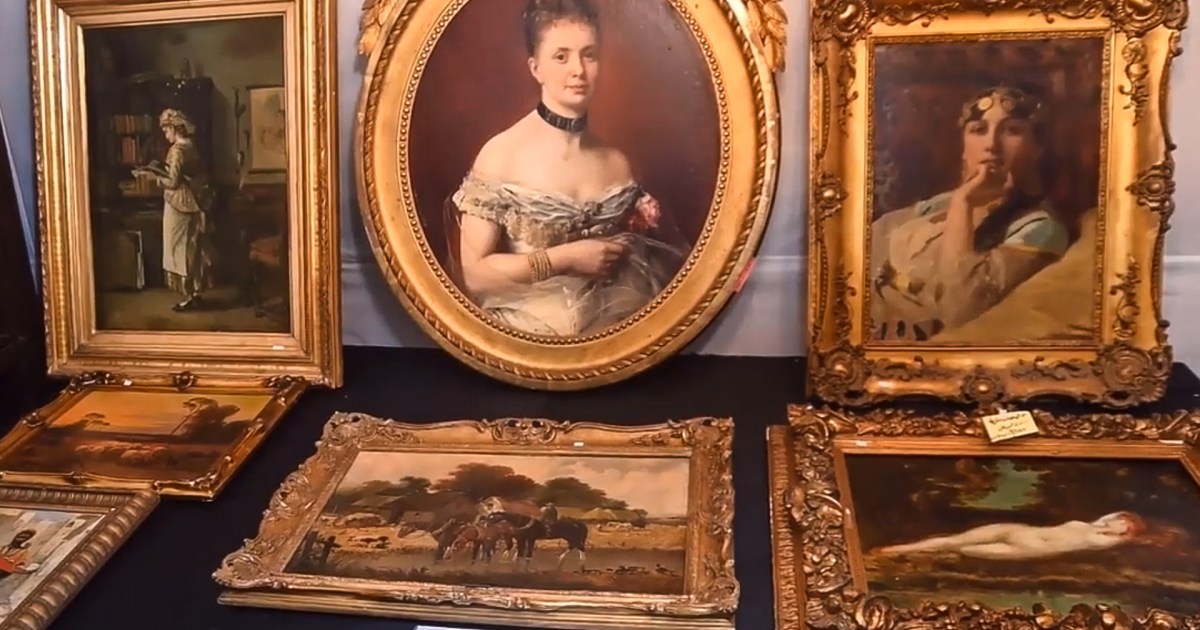Cairo -
The head of the Cairo Appeals Court issued a decision to ban publication in the case in which a senior judge and his wife are accused of trafficking in antiquities, known in the media in the Zamalek apartment, and the head of the court set a session on February 19, to start the trial of the accused before the Cairo Criminal Court.
The decision comes a day after the “Masrawy” website published the text of the prosecution’s investigations with the owner of the apartment, Counselor Ahmed Abdel Fattah, the former Vice President of the State Council, and the technical advisor to the President of the Constitutional Court of the State of Kuwait, in which he justified his possession of thousands of antiques and artifacts as having a “satisfactory” hobby. To collect artworks, he intended to create his own museum.
The decision also comes a day after an Egyptian website published statements attributed to the accused judge accusing the inventory committee of stealing some unique pieces from the apartment.
satisfying hobby
And “Masrawy”
website began
last Monday to publish parts of the prosecution’s investigations with the accused judge Ahmed Abdel Fattah, during which he admitted that he and his wife owned the apartment and the shop in which the artifacts were found, explaining that he rented them in the seventies of the last century as a marital residence, and then, before lending him to work abroad, prepared The apartment to store his valuables inside, where he changed the doors and windows with a special type that is difficult to open.
During the investigations, Abdel-Fattah expressed his conviction that a large number of pieces, such as those owned by the family of "Mohamed Ali", were not antique, noting that he bought some of them through public auctions set up by the Egyptian government, while some of them were inherited from his ancestors, noting that the current Antiquities Law was presented. He had to - before its approval - to express a legal opinion on it, and that he said at the time that the definition of impact in this law is a rubber-based definition that is not tight and ignorant and should not be left to the party that implements it because it unleashed it.
The accused also claimed that the characterization of some of the pieces was wrong, and that he was surprised during the presentation made by the prosecution that there was a Chinese-made "vaza" that he bought from the Friday market in Kuwait for 5 Kuwaiti dinars, and it was described as antiquities, indicating that it was presented to the State Council ( The Administrative Judiciary Authority in Egypt) on 3 different times worked as a museum in the name of the Council, provided that the Antiquities Authority is its supervisor.
The accused concluded his statements - according to
the Masrawy website
- that he has a hobby - satisfactorily - for collecting antiques and artwork without paying attention to the extent of their interest in their forms and beauty, and that the artifacts that were seized during 60 years are the age of this hobby, expressing at the end of the investigations his desire to hand over All his seized possessions, whether archaeological or recommended to be registered as antiquities to the Supreme Council of Antiquities.
In
an interview
with "Frankly", the accused counsel accused the First Inventory Committee of the Ministry of Antiquities of "stealing rare pieces and antiques in the absence of the prosecution," and accused the Secretary-General of the Supreme Council of Antiquities, Mustafa Waziri, of spreading lies in the media about the apartment's holdings, citing the presence of a "tableau". A drawing of the late leader Mustafa Kamel, recorded by the technical committees as a drawing of the leader Ahmed Orabi, and a presentation to the prosecution included seizures that include a reference to a scarab belonging to the Pharaonic Queen Hatshepsut, while the technical reports did not mention anything about the scarab and its relationship with Hatshepsut.
In early January, the Egyptian Public Prosecutor had ordered the referral of Counselor Ahmed Abdel Fattah Hassan and his wife to the Criminal Court on charges of trafficking in antiquities, as they used to buy, sell and exchange them, but the court decided to release him on a bail of one million Egyptian pounds (the dollar is about 15.7 pounds). It also seized and brought the wife who the investigations said was a fugitive inside the country.
And the Public Prosecution said - in a statement - that it had ordered the judge's release, justifying this behavior with what she described as "considerations related to assessing the availability of justifications for continuing his pretrial detention stipulated by law, which have nothing to do with the nature of the job he previously held in the country or that he now occupies outside it." Noting that his and his wife's name were included in the travel ban lists.
And the story of the apartment began by chance - according to the Egyptian media - when the enforcement police stormed the apartment last June, to implement a ruling issued to a citizen enabling him to leave the apartment. Secretly inside the apartment, it includes antique pieces and paintings dating back to different Egyptian eras. The Egyptian media even called it "Ali Baba's Cave", an expression derived from the famous folk story in which the woodcutter Ali Baba found a cave filled with jewels that some thieves stole and seized.

